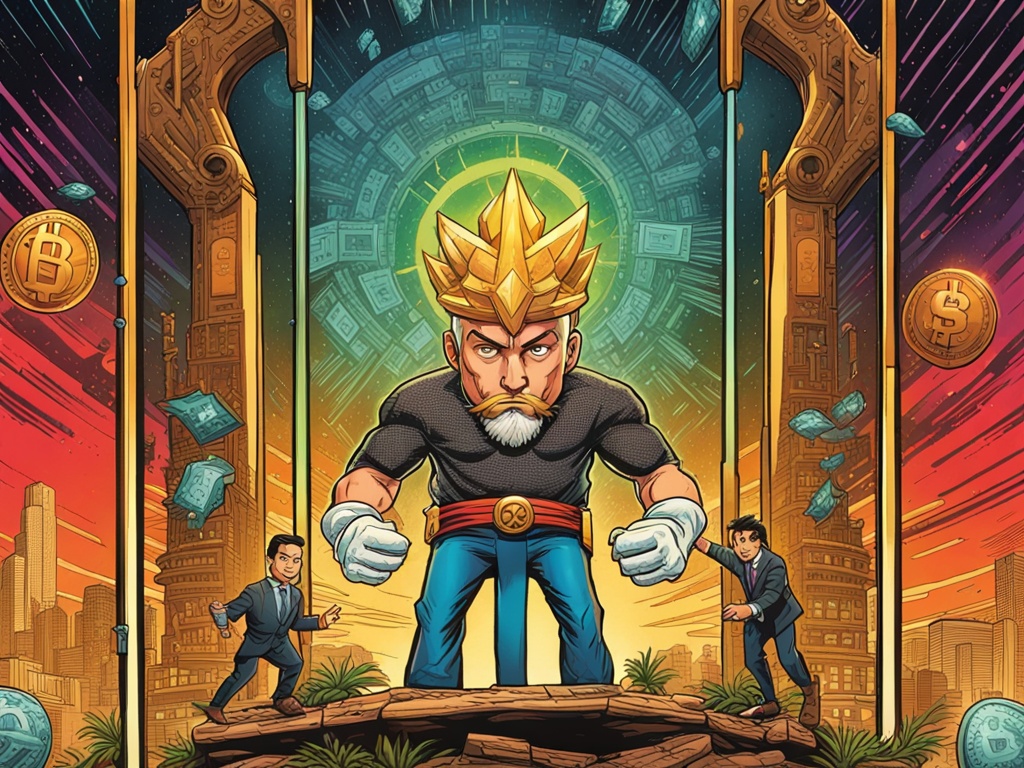El Salvador’s Bold Bitcoin Strategy: A Global Leader 🌍
El Salvador has firmly established itself as a prominent player in the realm of Bitcoin by securing its position as the sixth nation to hold over 6,000 BTC. As of December 29, the country augmented its holdings by acquiring one additional Bitcoin, now totaling 6,000.77 BTC, which is valued at around $569.3 million according to the National Bitcoin Office’s portfolio tracker.
This year, the nation’s investment in Bitcoin has seen a remarkable growth of 108.02%, with the average acquisition cost being $45,450 per coin. These figures stem from metrics provided by President Nayib Bukele’s tracking system.
El Salvador’s Commitment to Bitcoin 🌟
El Salvador embarked on its Bitcoin venture on September 6, 2021, when it purchased its initial batch of 200 BTC, soon after making history as the first country to recognize Bitcoin as legal tender. The country ranks sixth in the world regarding Bitcoin reserves, following major holders like the United States, China, the United Kingdom, Ukraine, and Bhutan, as documented by BitBo’s Bitcoin Treasuries.
Despite facing considerable criticism from international entities such as the International Monetary Fund (IMF), the Bukele administration remains resolute in its Bitcoin agenda. The government has expressed no intentions of divesting its Bitcoin assets and continues to affirm Bitcoin’s integral role in the nation’s economic framework.
Stacy Herbert, the Director of El Salvador’s National Bitcoin Office, hinted in a December 19 post that the government might expedite its Bitcoin acquisition process, signaling an eagerness to enhance their holdings.
Major Changes in Bitcoin Wallet Strategy 🏦
El Salvador is undergoing shifts in its Bitcoin management, including the phasing out of Chivo, the official Bitcoin wallet. The government plans to transition to private-sector wallets to ensure a smoother operation moving forward. Additionally, the ongoing discussions about a $1.4 billion agreement with the IMF are still pending, with negotiations showing strain tied to the country’s Bitcoin embracing stance. This deal could have significant implications after four years of back-and-forth dialogue.
US States Eyeing Bitcoin Reserves 💼
On the US front, Ohio has emerged as the latest state exploring the possibility of adding Bitcoin to its treasury reserves. House Republican leader Derek Merrin has recently proposed a new bill aimed at this initiative. This move aligns with similar efforts by Texas and Pennsylvania, both of which have shown interest in establishing Bitcoin reserves as a response to economic conditions.
On December 12, 2024, Texas Representative Giovanni Capriglione introduced the Texas Strategic Bitcoin Reserve Act, which aims for state comptrollers to maintain Bitcoin as a reserve asset for a minimum of five years. Pennsylvania has taken a comparable approach; in November, Representative Mike Cabell suggested a bill to permit its treasury to allocate up to 10% of its balance sheet in Bitcoin, citing its potential as a safeguard against economic instability.
Furthermore, corporate entities holding Bitcoin, like MicroStrategy and Metaplanet, have continued to expand their portfolios. Recently, MARA Holdings (MARA) announced that it acquired 11,774 BTC as part of its latest purchase strategy, declared on December 10 via social media platforms.
In line with these developments, Riot Platforms, a company specializing in Bitcoin mining, has opted to raise $500 million through a private bond offering to enhance its Bitcoin reserves. However, predictions from Galaxy Digital’s head of research, Alex Thorn, indicate that the US government is not likely to procure Bitcoin in 2025. In a report released on December 27, Thorn mentioned that while conversations regarding a Bitcoin reserve policy may advance, the government is expected to concentrate on managing its existing Bitcoin allocations instead.
Hot Take: The Future of Bitcoin in El Salvador and Beyond 🔮
El Salvador’s steadfast commitment to Bitcoin showcases a pioneering spirit that sets it apart on the global stage. As Bitcoin continues to evolve, the nation’s approach could serve as a fundamental case study for other nations weighing the option of incorporating cryptocurrency into their financial systems. With initiatives emerging in the United States and other countries, the influence of Bitcoin could ripple across global economies.
Observing El Salvador’s trajectory, it raises questions about the long-term implications of adopting cryptocurrency as a core economic component. How other nations respond to such groundbreaking initiatives will play a critical role in determining the future landscape of digital currencies and their integration into traditional financial frameworks.
While the environment remains dynamic, the potential of Bitcoin continues to be a focal point for discussion and strategy, ushering in new possibilities for financial systems worldwide.





 By
By
 By
By
 By
By
 By
By
 By
By
 By
By